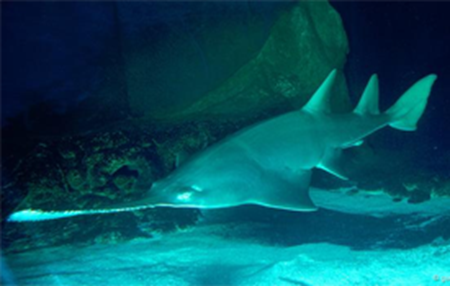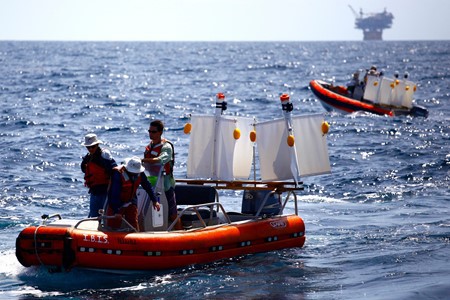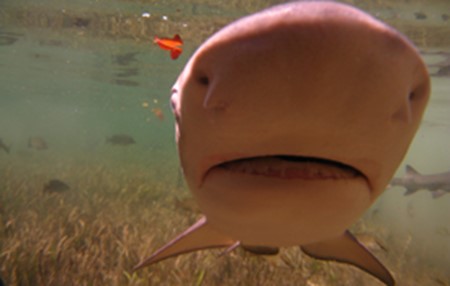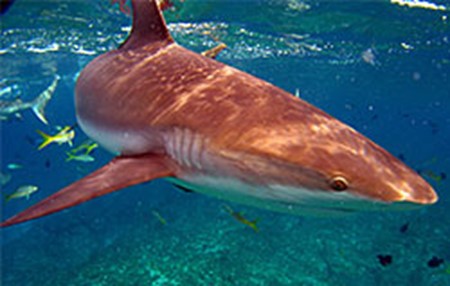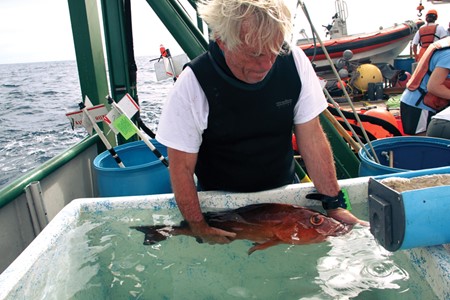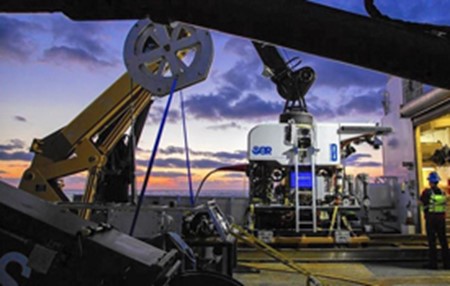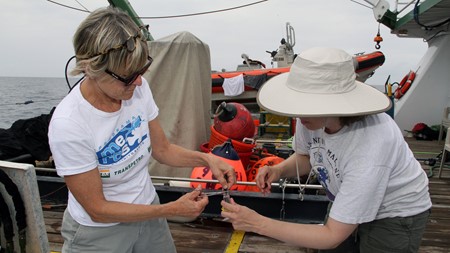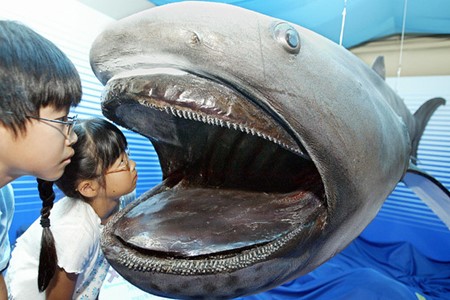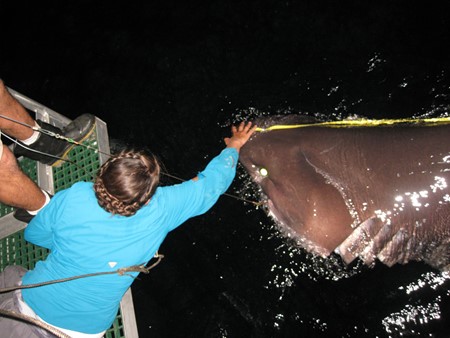In a recently published research paper, a group of researchers, including Dr. Dean Grubbs, reveal the last place in the ocean that the smalltooth sawfish lives.
Five Things the Gulf Oil Spill Has Taught Us About the Ocean
Dr. Dean Grubbs says, "Most people don't realize that more than half of all shark species in the world live their whole lives below 700 feet deep.” Learn more about the research of Dr. Grubbs and his team on the surprising migratory patterns of the bluntnose sixgill shark.

